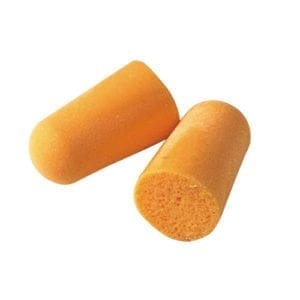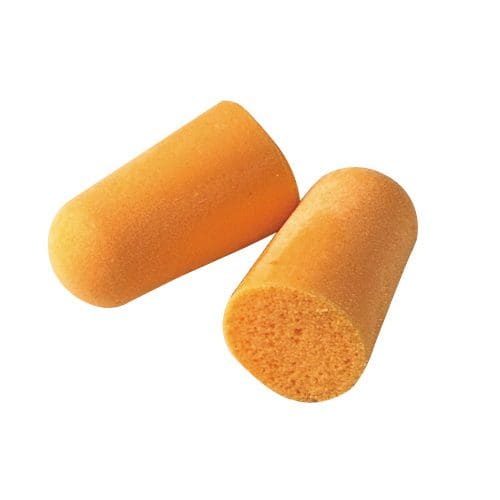6 tips to protect your hearing
We all want to protect our hearing but most of us don’t really know what everyday situations can put your hearing at risk.
It’s not just going to nightclubs, concerts and noisy bars that could potentially cause harm. Mowing the lawn, using the underground and noisy workplaces all play a role in long term hearing health.
Below are some tips and reminders to help you be proactive with your hearing health and hear better for longer.

simple foam ear plugs will help protect your hearing from damage in the noisiest of situations
1 – Be aware of the warning signs.
Whatever the environment – loud pub, concert, using power tools- if you experience a buzzing or ringing in your ears then that’s a sign that your ears are suffering and you should ideally remove yourself from the situation.
2 – Try ear plugs or ear defenders
Most simple foam ear plugs can help drastically reduce the amount of noise reaching your ear drum and are ideal for the workplace, commuting or noisy recreational activities.
Ear defenders, think old-school headphones in style, although not quite as good at reducing sound, do have the advantage of being easily removed and replaced even with gloved hands, so are ideal for using in outside environments.
3 – Limit your time listening to music
When listening to music on headphones or ear buds the 60/60 rule should apply. That is, no more than 60 percent of maximum volume for more than 60 minutes per day.
Where your music device has a volume limit use it, but ideally drop it by 10 percent.
4 – Take a rest and recover.
Whatever the scenario, noisy work environment, mowing the lawn, if you are exposing your ears to loud sounds just take regular break from what you are doing.
This will give your ears time to recover and reduce the likelihood of the tell-tale ringing later in the day.
5 – Stop smoking
If you are still smoking then there is yet another reason to reconsider whether you should.
There is a proven link with smoking and hearing loss as it reduces blood flow and the intake of oxygen.
In addition smoking has negative impact on our auditory neurotransmitters and plays havoc with our middle ear.
6 – Get regular hearing checkups
We routinely protect our long term health by having dental check ups and eye tests, but until it comes to the time that hearing aids are fitted, most people have probably not had a hearing test since they were at school.
Taking a simple hearing screen every few years will determine where your hearing health is and will identify any concerns at an early stage. If you know someone who could benefit from taking a hearing screen encourage them to contact us today.
Just turning up the volume is not the answer.

